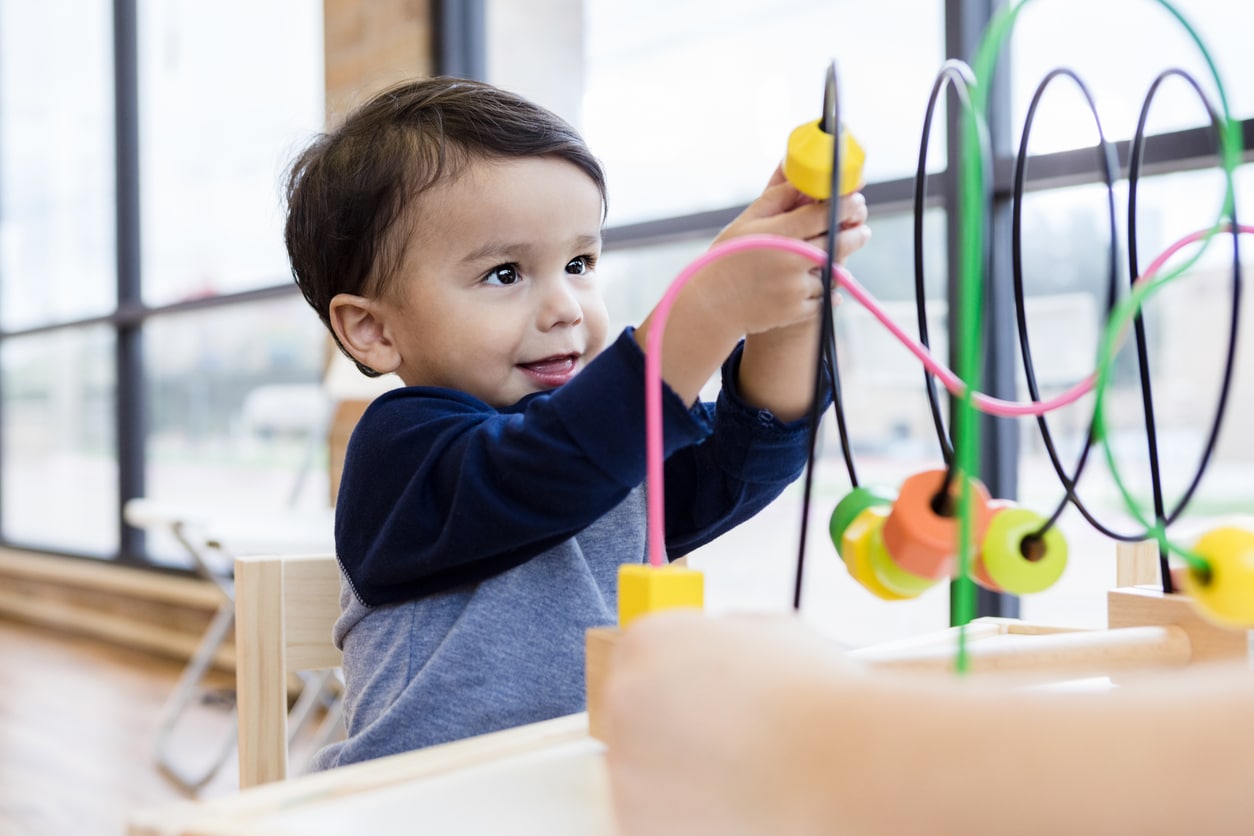Play therapy is a type of therapy in the context of play. But how does it work? We might remember playing as children, but many of us may need to remember how to do it!
Play is the default way that children express themselves. As their brains and emotional capacities are still developing, they can find it difficult to verbalise feelings and make sense of difficult experiences and situations. Play therapy offers a way for children and adults to process difficult emotions and learn valuable coping skills, just like you would in traditional psychotherapy.
This article will discuss this type of therapy, how it works and why it is valuable. We’ll also share ways to expand your knowledge about working with children and adolescents.
What is play therapy?
Play is how children naturally express themselves. Adults also benefit from play, but we don’t often allow ourselves to express our thoughts and feelings in a carefree way without a direct aim or purpose. As adults, we may feel vulnerable if we don’t understand the parameters of an activity.
Nevertheless, play offers many opportunities for free and spontaneous self-expression. Observing how children play can give us insight into their inner world. Adults, too, can benefit from play-related activities such as role-playing. Music and art therapy also involve elements of play by facilitating self-expression.
How does play therapy work?
We’ve established that playfulness facilitates freedom of expression and that children are naturally wired to express themselves through free and unstructured activities. While adults can also benefit from play therapy, we’ll now focus on how it relates to children to understand how it works.
In this context, play therapy focuses on addressing social, emotional, and behavioural difficulties. As mentioned, children may be unable to verbalise or make sense of what is happening in their lives. If a child is experiencing difficulties in their family, perhaps the loss of a loved one, a divorce, or any other emotional upheaval, they might struggle to get the support they need as they don’t know how to ask for it.
In this case, a qualified counsellor trained in play therapy can work with a child in a safe setting to explore thoughts and feelings, often through toys. For example, after building up trust with the child, a counsellor might ask the child to use toys to show their feelings. They might also ask questions about the toys to help reveal hidden worries and concerns.
It involves observing play and helping solve problems through unstructured exploration. Depending on the situation, the child often directs the session, but parents can also be involved. In this case, a counsellor observes how the parent and child interact and play together.
Counsellors will also observe how well the parent and child manage the separation process, which can provide insight into any attachment issues contributing to emotional challenges.
Why is play therapy valuable?
Play therapy is valuable because it can provide the means to observe behaviour and a safe space for children to express their innermost thoughts and feelings. In a comfortable and secure environment, therapists can guide children to access thoughts and feelings that they might not have known how to express to anyone else.
By engaging in this type of expression, children can learn how to express their thoughts and feelings appropriately, learn about others’ feelings, learn how to control their behaviour and gain confidence in solving problems.
Through a therapeutic process that can vary in length, a child will learn similar skills to what an adult learns through therapy but in a format that resonates with them.
Learn more about how to work with children and adolescents
Play therapy is one of many ways to work with children and youth. In today’s highly demanding and competitive world, youth need the correct input to thrive. Many children and adolescents struggle with mental health challenges but don’t always have access to counselling or other types of support.
If you’re interested in finding out more about working with children and adolescents and contributing to supporting the next generation, SACAP Global offers the following online courses and workshops, which can help you upskill in this area:
- Psychological Theories of Child & Adolescent Development
- Counselling Children & Youth
- Youth Mental Health First Aid
- Childhood Disorders – Causes, Symptoms, Misdiagnosis & Psychotherapeutic Treatment Modalities
- Integrating Gestalt Therapy When Working with Children
The above courses are also valuable to mental health professionals looking to expand their skills and learn different modalities for working with youth. With this information, you can provide a more holistic offering to youth, which includes counselling skills and mental first aid, as well as a broader understanding of psychological theory and other helpful modalities, like Gestalt.
For further information about what we offer, browse our course list.
